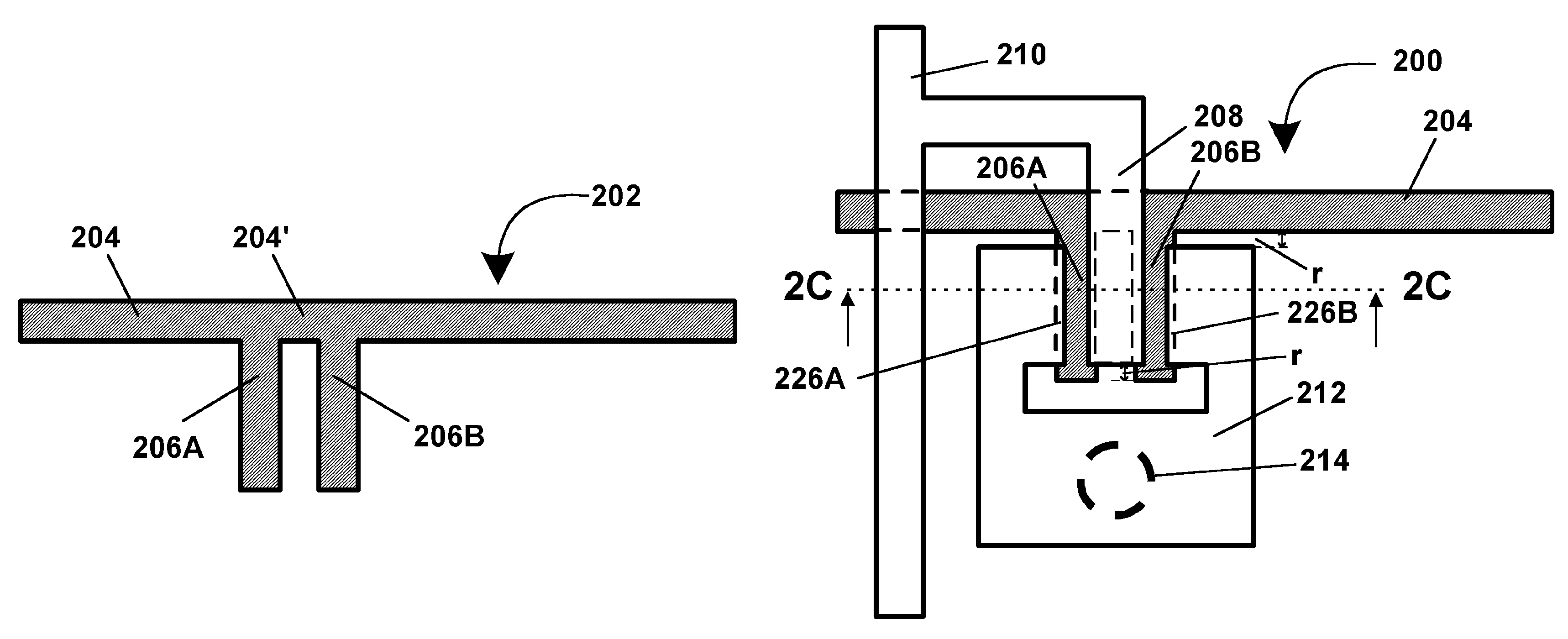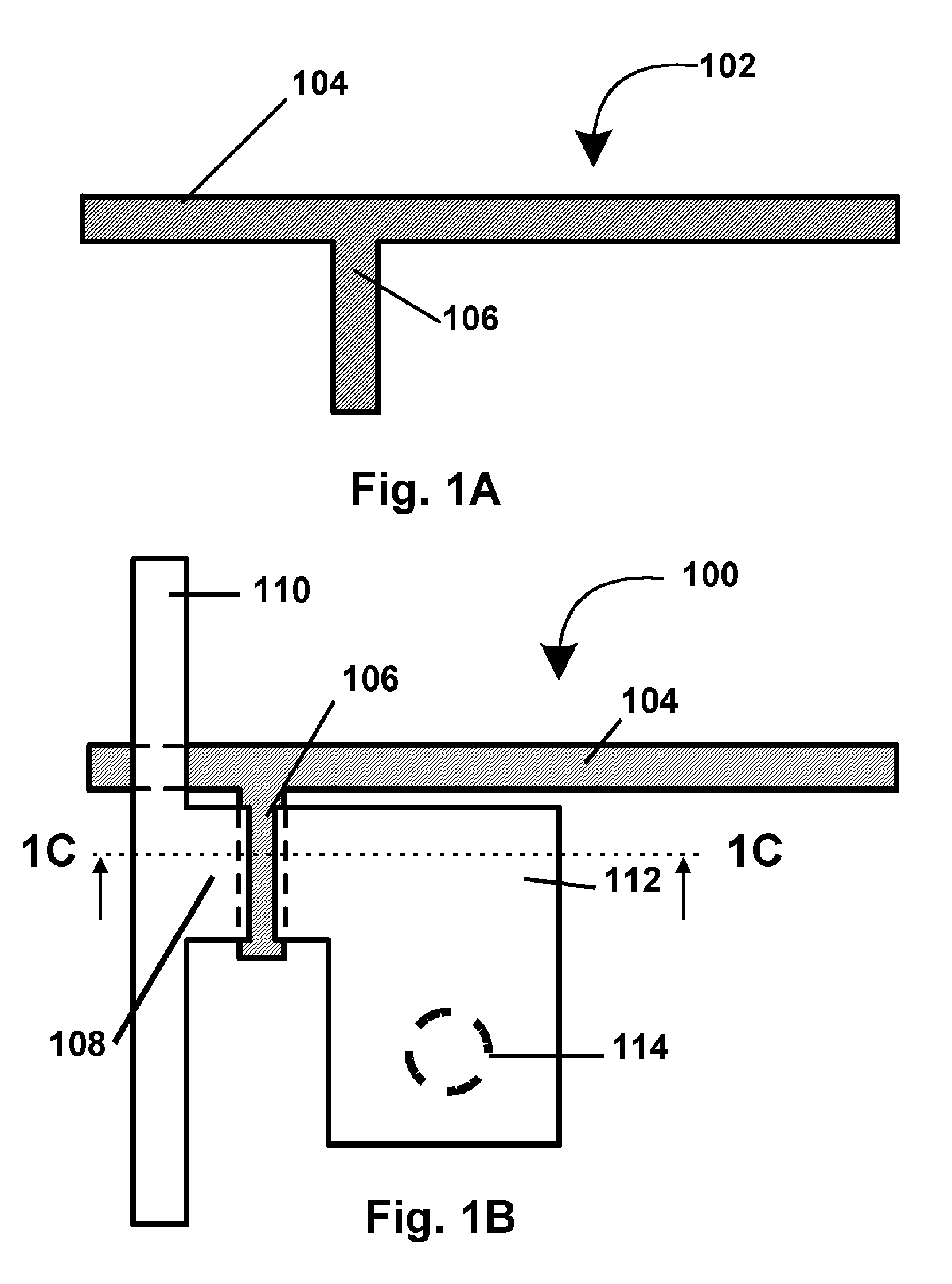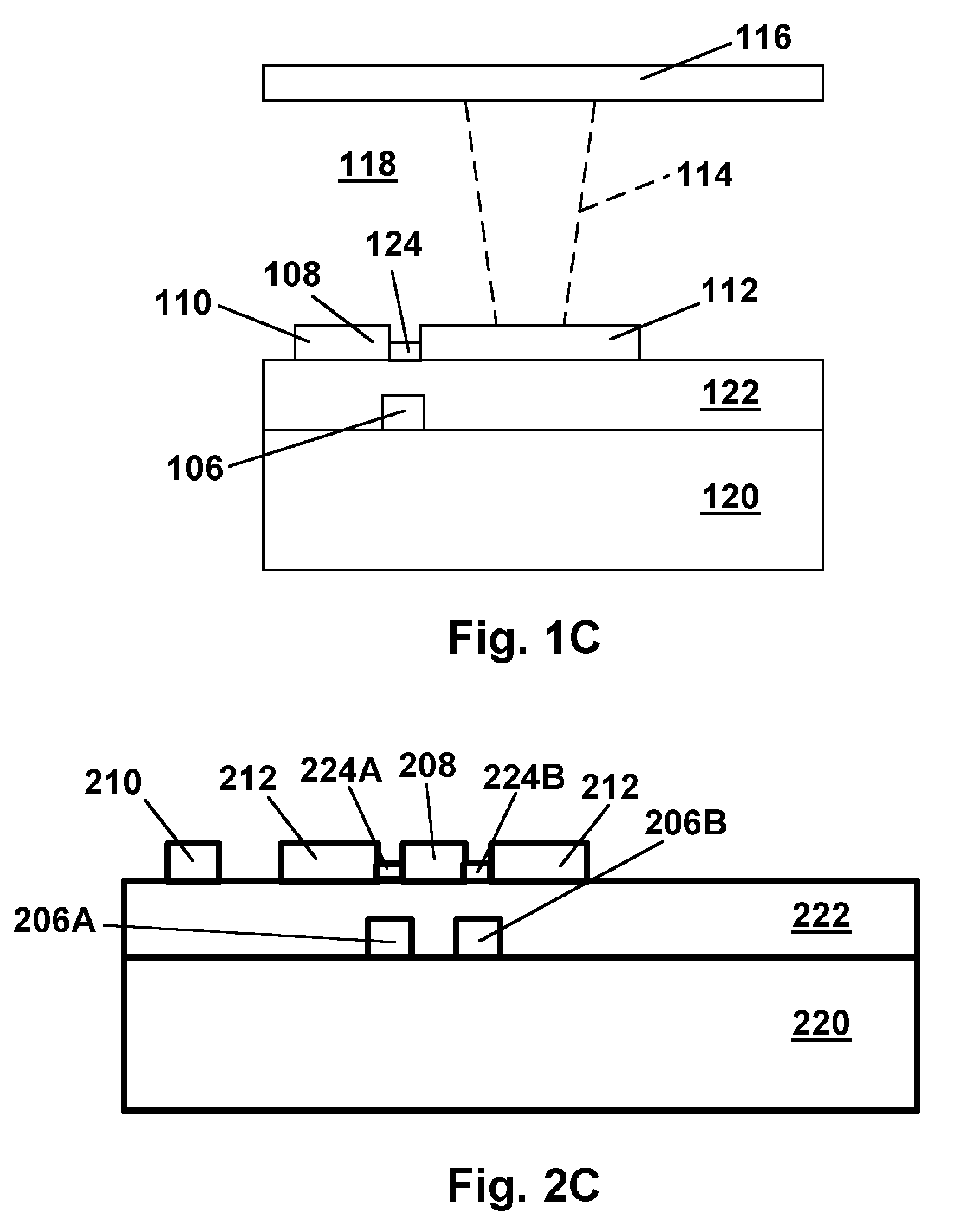Backplanes for display applications, and components for use therein
a backplane and display technology, applied in the field of backplanes for electrooptic (electronic) displays, can solve the problems of preventing their widespread use, inability to transmit, and inability to be bistable, and achieve the effect of simple processing steps and reduced manufacturing costs
- Summary
- Abstract
- Description
- Claims
- Application Information
AI Technical Summary
Benefits of technology
Problems solved by technology
Method used
Image
Examples
Embodiment Construction
[0124]In the following detailed description, registration tolerant transistors will first be described with reference to FIGS. 1A-5. Next, processes for the formation of diodes and diode arrays by the processes of the present invention will be described with reference to FIG. 6A-8B. Screened source backplanes will then be described with reference to FIGS. 9A-10, and balance line backplanes will be described with reference to FIGS. 11-15. Finally, drivers of the present invention for driving balance line backplanes will be described with reference to FIGS. 16-20.
[0125]Registration-Tolerant Transistors
[0126]As already mentioned this invention provides a registration-tolerant transistor in which the gate electrode has two spaced edges and the drain electrode has first and second electrode edge portions which overlap the two spaced edges of the gate electrode to define two separate overlap areas, such that translation of the gate electrode relative to drain electrode (for example, due t...
PUM
| Property | Measurement | Unit |
|---|---|---|
| TFT | aaaaa | aaaaa |
| aspect ratio | aaaaa | aaaaa |
| contrast | aaaaa | aaaaa |
Abstract
Description
Claims
Application Information
 Login to View More
Login to View More - R&D
- Intellectual Property
- Life Sciences
- Materials
- Tech Scout
- Unparalleled Data Quality
- Higher Quality Content
- 60% Fewer Hallucinations
Browse by: Latest US Patents, China's latest patents, Technical Efficacy Thesaurus, Application Domain, Technology Topic, Popular Technical Reports.
© 2025 PatSnap. All rights reserved.Legal|Privacy policy|Modern Slavery Act Transparency Statement|Sitemap|About US| Contact US: help@patsnap.com



